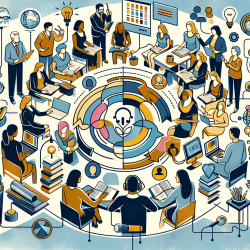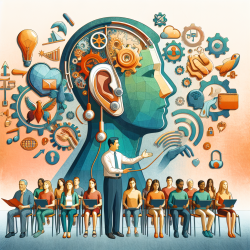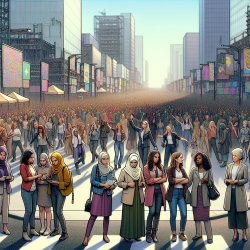The COVID-19 pandemic has been a catalyst for change in many sectors, including education. As schools and educational institutions faced unprecedented challenges, community-based adult educators stepped up to the plate with innovative strategies to support low-income and newcomer communities. The research article "Inventive pedagogies and social solidarity: The work of community-based adult educators during COVID-19 in British Columbia, Canada" sheds light on these efforts and offers valuable insights for practitioners looking to enhance their skills and impact.
The Power of Inventive Pedagogies
The study highlights the concept of "pandemic pedagogies," which emerged as educators adapted to the rapidly changing landscape. These inventive approaches were not only about survival but also about fostering social solidarity and addressing intersectional oppressions. By developing dynamic pedagogies, educators were able to create more equitable and inclusive educational environments.
Key Strategies for Practitioners
- Embrace Flexibility: The ability to adapt quickly to new circumstances is crucial. Educators who embraced flexibility were able to implement creative solutions that met the unique needs of their communities.
- Foster Collaboration: Building strong relationships with learners, co-workers, and administrators is essential. Collaborative efforts can lead to more effective problem-solving and resource sharing.
- Leverage Technology: While digital inequalities pose challenges, technology can also be a powerful tool for connection and learning. Educators should explore ways to use technology creatively to engage learners.
- Promote Social Solidarity: Education is not just about imparting knowledge; it's about building communities. Practitioners should focus on fostering a sense of togetherness and mutual support among learners.
Navigating Intersectionality in Education
The pandemic has made intersectional oppressions more visible, highlighting the need for educators to address these complexities in their work. By understanding the diverse experiences of learners based on gender, race, class, age, immigration status, language, and more, educators can tailor their approaches to better meet the needs of their communities.
Challenging Traditional Hierarchies
The study found that the pandemic disrupted traditional hierarchies between educators and learners. By engaging in collaborative problem-solving and direct communication, educators were able to create more responsive programs that empowered learners as active participants in their education.
A Vision for Post-Pandemic Education
The insights gained from this research offer a roadmap for reimagining community-based education in a post-pandemic world. By continuing to embrace inventive pedagogies and social solidarity, educators can contribute to a more equitable future where all learners have access to quality education.










